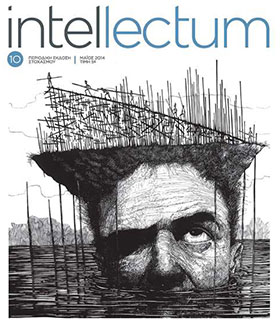Angelos Chaniotis is an Ancient History professor (1998-2006) and Associate Dean for International Relations at the University of Heidelberg (2001-2006). In 2006, Dr. Chaniotis was appointed Senior Research Fellow in Classics at All Souls College and he currently teaches in the University of Oxford.
* This article constitutes the most recent edition of a conference introduction, which took place in Teloglion Foundation of Art on September 12th 2006, under the topic: “Professors and Teaching, A Comparison of German and Greek Universities”.
Abstract: The era of globalisation has ramifications both for research and technology, consequently, also for European universities. However, the authorities of higher education in Europe and Greece do not seem to have conceived the messages of our times. The myopia of European policy for higher education becomes apparent in the reforms that have taken place in the past few years.
We cannot predict how future historians will name our era, but the term “globalisation era” certainly is a good candidate. In no other historical period in the past have the various regions of our planet been part of such an extensive and continuous network of communication and exchange, and this despite the different level of economic development and the heterogeneity of culture, social organisation, and constitutional structures.
While globalisation is viewed today mainly as an economic phenomenon, it also has implications for research and technology, and, consequently, for European universities. We may discern these implications, for instance, in the progressive increase of the numbers of Chinese students in European and American universities, the repercussions of 9/11 in academic exchanges between American and European universities and the corresponding increase of students and researchers from countries that have fallen victims of the strict USA visa regulations. The mobility of teachers, students, and researchers has increased considerably, and not only through the traditional exchange channels between European universities (Erasmus/Socrates programme) or between American and European universities. The top-eight universities in Australia, a country where higher education has developed into one of the most significant economic factors, inaugurated in 2005 an office in Berlin in order to promote their collaboration with German research, but primarily in order to enhance the possibilities of recruiting researchers. During my visit at Beijing University in May 2006, I encountered a young Swedish researcher in chemistry, for whom the university had amended its internal regulations and permitted the submission of a doctoral thesis in English. Similar phenomena will become more frequent in the next years and it is not accidental that the German Research Council (Deutsche Forschungsgemeinschaft) inaugurated recently an office in New Delhi, in addition to the already existing one in Beijing.
Read full article: https://intellectum.org/articles/issues/intellectum2/en/ITL02p005015_European_Universities_and_the_Challenge_of_Globalisation_Chaniotis.pdf

